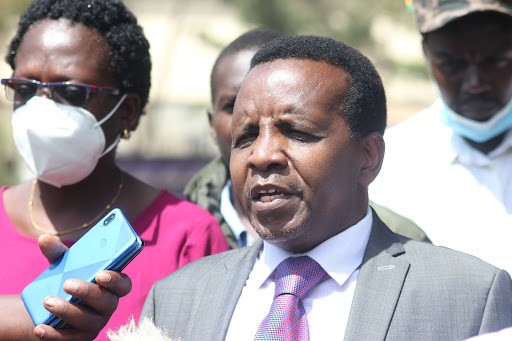
 Televangelist and 2022 presidential aspirant Reuben Kigame. /FILE
Televangelist and 2022 presidential aspirant Reuben Kigame. /FILETelevangelist and 2022 presidential aspirant Reuben Kigame has criticised the government, saying it is using university education as a political tool, following its recent decision to lower tuition fees in public universities and constituent colleges.
The Ministry of Education, through Higher Education Principal Secretary Beatrice Inyangala, announced the new fee structure on July 30, saying it was informed by wide consultations with students, parents, and higher education stakeholders.
“This bold step reaffirms our commitment to ensuring affordable, accessible, and quality university education, while maintaining the financial sustainability of our institutions,” Inyangala said in a statement.
The revised rates take effect on September 1, 2025, and will apply to both new and continuing students.
Under the new structure, pre-clinical and clinical medicine courses will cost between Sh12,960 and Sh75,000 per semester.
Dentistry and pharmacy fall within the same band.
Business, education (arts), and economics courses will range from Sh7,525 to Sh30,101, while basic sciences like mathematics and physics will cost between Sh10,659 and Sh42,636.
Humanities programmes will cost between Sh5,814 and Sh23,526 per semester.
Leader of Majority in the National Assembly Kimani Ichung’wah praised the move, crediting President William Ruto’s administration for what he described as a progressive step.
“H.E. President William Ruto has once again reaffirmed his commitment to making tertiary education accessible and affordable to every Kenyan child by lowering school fees,” Ichung’wah said.
But Kigame was quick to rebuke the statement, dismissing the fee reduction as a calculated political ploy.
“Kimani, you people must stop playing games with the lives of Kenyans. You actually imagine you are smarter than 56 million citizens?” Kigame wrote on X in a strongly worded post.
“You think you can play politics with the lives of our children and get away with it? Now we know that you hiked [fees] for political gain so that two years before elections, you can say your candidate brought the cost of education down. May God judge you.”
Kigame’s remarks underscore growing political tensions over education reforms that have faced both praise and criticism since the rollout of the new funding model in 2023.
While the government says the model ensures equity through needs-based scholarships and loans, critics argue it has pushed many families to the brink of financial ruin.
The court listened to the concerns and declared the funding model unconstitutional, saying it was discriminatory in the sense that some students are awarded higher sponsorship than their peers.
The court further argued that it's the government's responsibility to provide education to citizens and it cannot delegate that constitutional obligation to parents.
Inyangala said students would continue receiving government support through the Higher Education Loans Board (HELB) and the University Fund, based on individual financial needs.
She directed universities to align their fees portals with the new structure by the end of August.
"We count on your full cooperation to implement these financing reforms efficiently, equitably, and in the best interest of Kenyan students and families," the PS said.











